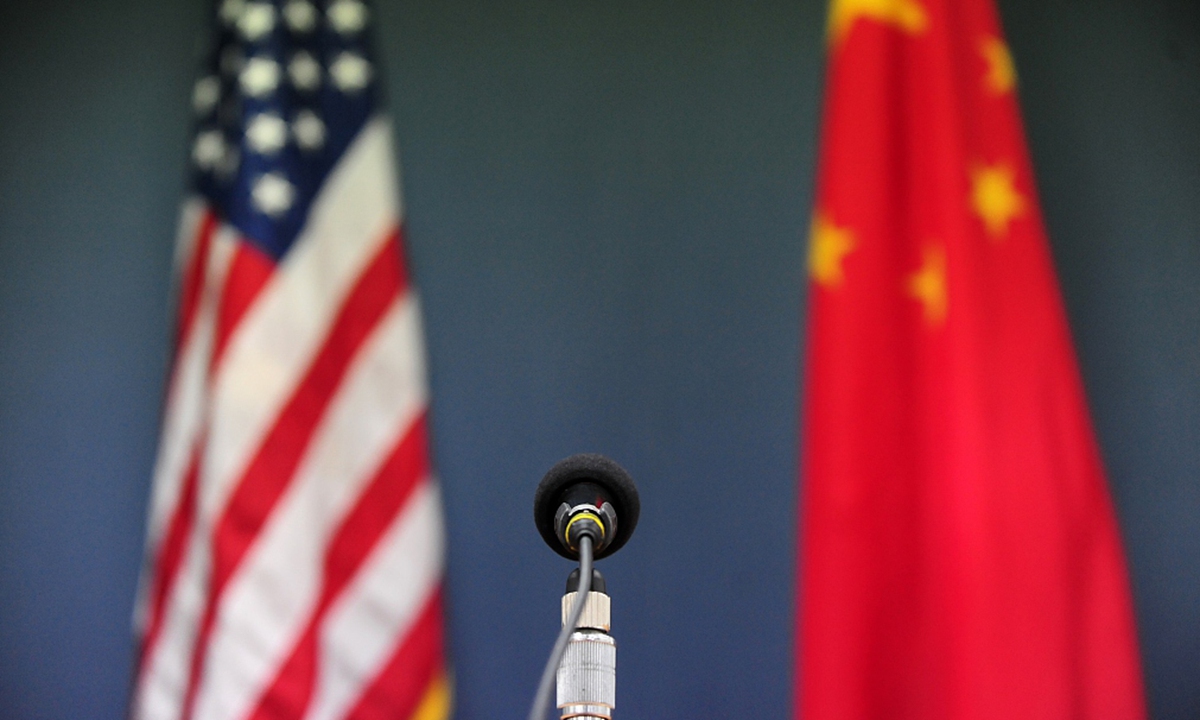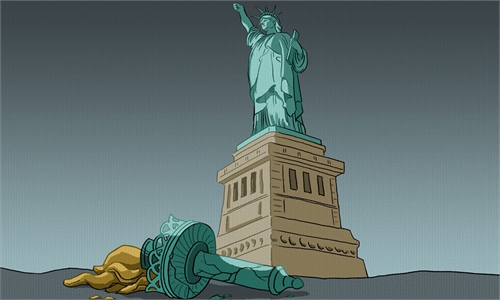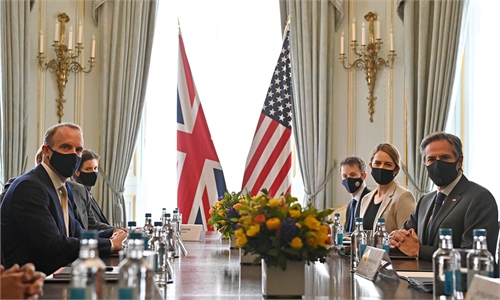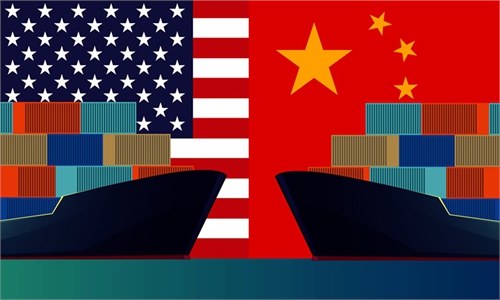
Photo: VCG
With the US relentlessly imposing supply chain restrictions on Chinese companies citing unsubstantiated "national security concerns," it is bitterly ironic to see a US business organization complain about fear of unfair treatment in the Chinese market.In an annual white paper released on Tuesday, the American Chamber of Commerce in China (AmCham) called on China to abandon "implicit, unpublished, or internal guidance to replace" US or other foreign products and services with domestic alternatives, adding that China should honor its commitment to equal treatment for foreign companies.
Over the years, it has become a habitual practice for AmCham to play up accusations and criticism about China's business environment for US companies as part of its annual white paper. Given the highly tense bilateral diplomatic and trade relationship, it is no surprise to see the US business group to continue that ritual, while turning a blind eye to the unfair treatment Chinese businesses face in the US and the fact that the primary challenge for American companies in China is actually caused by trade wars and disruptive actions launched by the US government.
Moreover, the AmCham white paper selectively ignores China's remarkable progress in opening up its domestic market and improving the business conditions for foreign companies, including US firms. From policymaking to implementation, China has never stopped pushing for greater openness to the outside world.
In fact, after the Foreign Investment Law came into effect at the beginning of 2020, China's opening-up has been accelerating in many industries, especially in the services and financial sectors. China's negative list of sectors off-limit to foreign firms was narrowed down to 33 terms in 2020 from 93 terms in 2015, while the Catalogue of Industries for Encouraging Foreign Investment has been expanded to 480 in 2020 from 349 in 2015, according to the Ministry of Commerce.
In stark contrast, the US launched a relentless and malicious crackdown campaign against Chinese businesses under the Trump administration. So far, more than 300 Chinese entities have been blacklisted by the US. Since taking office in January, US President Joe Biden has continued that campaign. In April, the Biden administration imposed sanctions on seven Chinese supercomputing companies, evidence that Biden has largely inherited the biased attitude when it comes to trade policy toward China.
Despite the US' vicious crackdown on Chinese businesses, China has not taken measures targeting any US company based on unjustifiable reasons. On the contrary, China's opening-up measures and improved business environment have won recognition of US and other foreign businesses. Here is proof: China surpassed the US to become the world's largest recipient of foreign direct investment in 2020, attracting a total of $163 billion foreign investment.
To any objective eye, it should be the US, not China, that needs to abandon its politically-motivated suppression on Chinese businesses and improve its business environment to grant equal treatment for Chinese and other foreign companies. In that regard, the AmCham white paper was obviously not objective.
The organization has a responsibility to represent its members in the Chinese market, but it must be fair and objective in its assessment. Such biased accusations and criticism is not only irresponsible but also unhelpful in terms of improving the bilateral relationship, especially at such a delicate time when the US Trade Representative Katherine Tai recently signaled intention to start trade talks with her Chinese counterpart.



